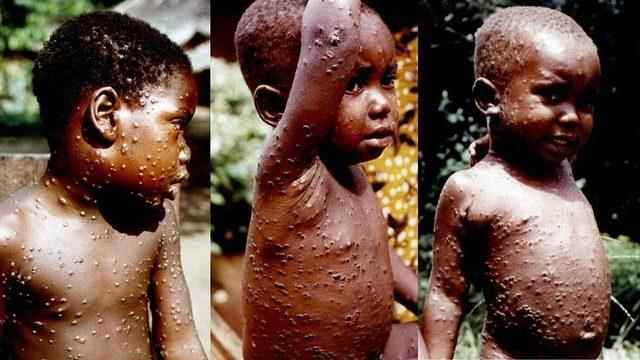The UK Health Safety Agency (UKHSA) has announced that a case of monkeypox has been confirmed in the UK. The patient has recently traveled to Nigeria, where he is believed to be infected. UKHSA reported that the infected patient was being treated in an isolation room at a hospital in London.
UKHSA Director of Clinical and Emerging Infections, Dr. Colin Brown said: “It is important to emphasize that monkeypox does not spread easily among humans and the overall risk to the general public is very low.” said.
WHAT IS MONKEY POLO DISEASE?
It is a rare disease caused by infection with the monkeypox virus, according to the Centers for Disease Control (CDC) in the United States. Monkeypox virus is one of them. According to the World Health Organization (WHO), the zoonosis primarily occurs in tropical rainforests in Central and West Africa and spreads to other regions.
SYMPTOMS OF MONKELOOM VIRUS
Fever, rash, severe headache, back pain, muscle aches (myalgia), severe asthenia (lack of energy), and swollen lymph nodes are the most common symptoms associated with monkeypox.
According to the WHO, skin rashes occurring within 1-3 days of the onset of fever are also reported in patients with monkeypox. The rashes are more concentrated on the face. In addition to the face, the global health authority said it also affects the palms and soles, the mucous membranes of the mouth, genitals and conjunctiva, and the cornea.
The incubation period of monkeypox (the interval from infection to the onset of symptoms) is usually 6 to 13 days, but can range from 5 to 21 days, according to the WHO.
HOW DOES THE MONKLE POLO VIRUS TRANSMIT TO PEOPLE?
The UK Health Safety Agency (UKHSA) said monkeypox is a rare viral infection that does not spread easily between people. According to the CDC, the disease was discovered in 1958 when two smallpox-like disease outbreaks occurred in research monkey colonies and gave the disease its name.
The first human-to-human case was reported more than 50 years ago in 1970 in the Democratic Republic of the Congo (DRC). The WHO says transmission can occur through direct contact with the blood, bodily fluids, or skin or mucous membranes of infected animals.
The natural reservoir of monkeypox has yet to be identified, but although rodents are the most likely source, eating undercooked meat and other animal products from infected animals is a possible risk factor, he added.
IS THERE A TREATMENT FOR THE MONKLE POISON VIRUS?
According to the WHO, there is currently no specific treatment recommended for monkeypox. Vaccination against smallpox has been found to be approximately 85 percent effective in preventing the disease. Therefore, she recommends pre-vaccination for smallpox in childhood to prevent serious monkey disease symptoms.
In addition to rodents, the natural host of monkeypox virus, string squirrels, tree squirrels, yurts, primates and other species have also been identified as carriers of the virus.
